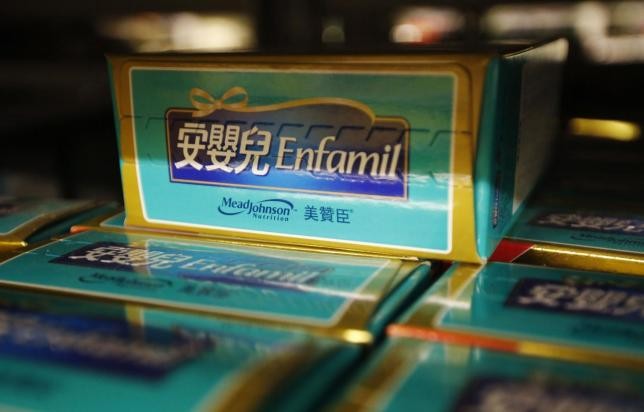The U.S. Department of Justice has officially closed an investigation over bribery charges involving Mead Johnson Nutrition Co., the infant formula maker’s China subsidiary announced Wednesday following a settlement reached between the company and U.S. regulators.
In a statement sent by Mead Johnson Nutrition (China) to the media on Wednesday, Mead Johnson has agreed to pay a total of $12 million to settle federal civil charges with the U.S. Securities and Exchange Commission (SEC). $7.77 million of the settlement will be for restitution, $1.26 million for interest, and $3 million for penalty.
"We are pleased to have reached final resolution with the SEC. Integrity and compliance with laws and regulations are central to the success of our operations around the world," Mead Johnson President and CEO Kasper Jakobsen said in the statement.
According to a press release posted on the SEC's website on Tuesday, Mead Johnson was in violation of the Foreign Corrupt Practices Act (FCPA), as the Glenview, Illinois-based company was found to have failed to account in its books and records more than $2 million in improper payments made between 2008 and 2013. The payments were reportedly used to bribe healthcare professionals at China's state-owned hospitals.
"Mead Johnson Nutrition's lax internal control environment enabled its subsidiary to use off-the-books slush funds to pay doctors and other healthcare professionals in China to recommend its baby formula and give the company marketing access to mothers," Kara Brockmeyer, chief of the SEC Enforcement Division's FCPA Unit, said in the release.
The improper payments generated $7.8 million in profits for the company, which it failed to accurately record in its books, according to the SEC.
Employees of the subsidiary allegedly paid for the bribes using funds intended for outside distributors that market and sell Mead Johnson products in China, the agency added.
The company neither admitted nor denied the allegations, according to the settlement agreement.
The SEC noted that after conducting internal investigations, Mead Johnson took corrective measures, including firing senior staff at its Chinese subsidiary, improving accounting controls, and establishing a unit in China to monitor compliance.
Jakobsen said that the company will continue to comply with the law "in all our interactions with customers and business partners."
Mead Johnson is not the only foreign infant formula producer to be accused of bribing Chinese officials in recent years. In Sept. 2013, state broadcaster CCTV reported that Dumex Baby Food Co. paid around 500,000 yuan ($80,507) to doctors and nurses at hospitals in China to recommend its formula to new mothers. Six companies, including Mead Johnson, were also fined a combined 669 million yuan by China's National Development and Reform Commission for violating anti-monopoly laws in August the same year.



























